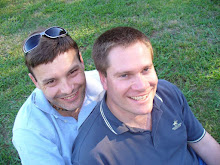The first time our self-cleaning iron spat large, crusty chunks of lime scale I was stunned. Not just by the stains appearing on my chosen business shirt, but by the sheer volume of residue the iron was attempting to disgorge. Since then we've bought bottle after bottle of special ironing water from the supermarket.
Hard water is something you learn about quickly when living in London. Most of southern England is built on deep chalk and limestone deposits, the fossilised remains of ancient sea creatures. These calcium deposits disolve readily in rainwater making the water here particularly hard.
Drinking water is generally considered to be 'very hard' in England. Most areas, particularly the East, exhibiting above 200 mg/L as calcium carbonate equivalent. By comparison, Sydney has levels of only 39.4 - 60.1mg/L.
Earlier generations coined the phrase 'hard water' because it made cleaning difficult. I'd believe it. Calcium residue, or limescale as its called, builds up on everything. It speckles the glass stall after just one shower and lingers on every stainless steel surface. Aside from special ironing water we've learnt many other tricks for tackling CaCO3 residue. The dishwater needs special salt. Bleach doesn't remove scale, it merely discolours it. Hard water is also harsh on your skin, encouraging residual soap scum that clogs your pores and chaffs your skin.
With so much limescale around, I'm keen to visit the Dover Cliffs. I might as well enjoy the geology that's creating it.
Thursday, October 05, 2006
Subscribe to:
Post Comments (Atom)




1 comment:
Doesn't sound good!!!
Post a Comment